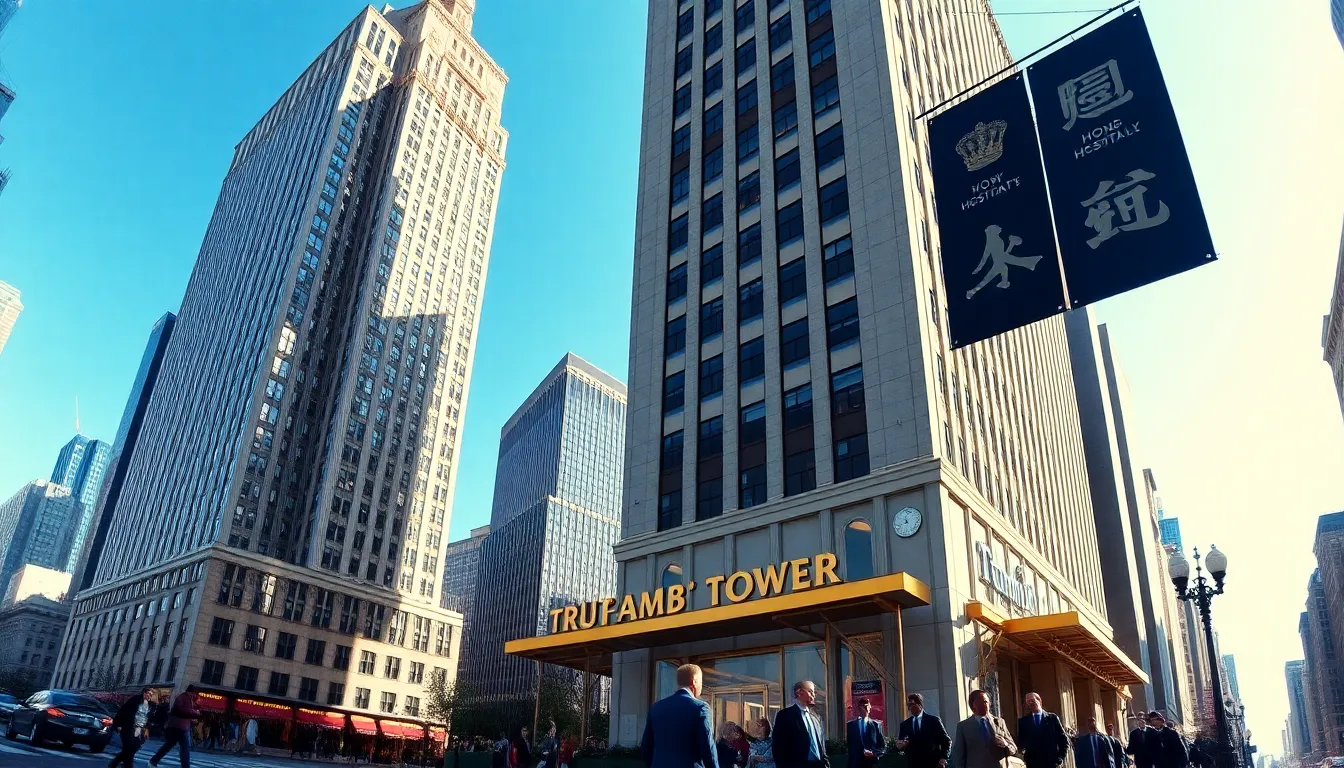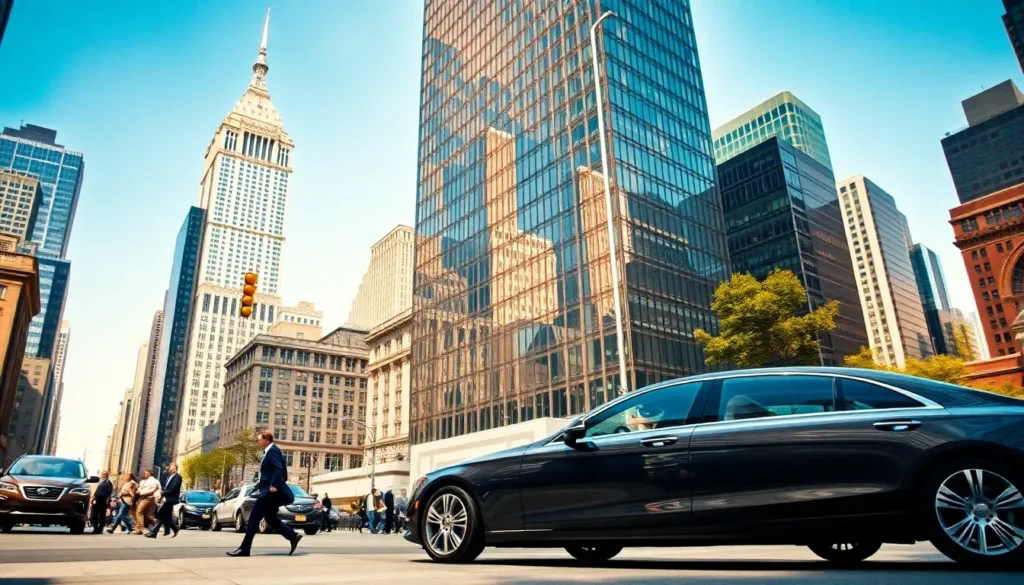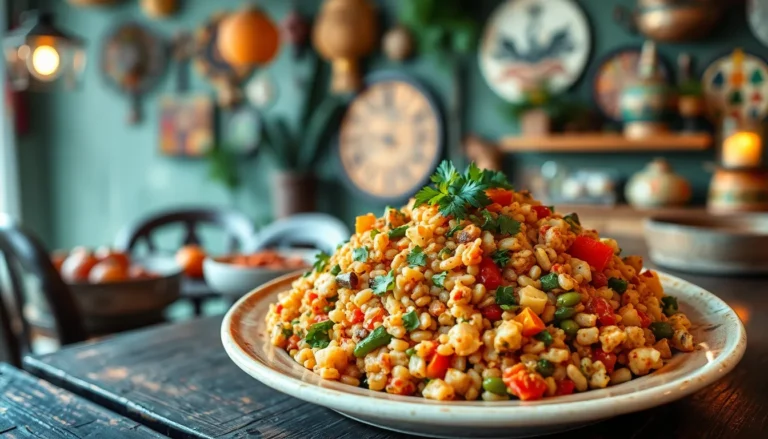Table of Contents
ToggleDonald Trump isn’t just a former president; he’s also a businessman extraordinaire with a portfolio that could make even the most seasoned moguls green with envy. But just how many businesses does this real estate tycoon own? Spoiler alert: it’s a lot. From luxurious hotels to golf courses that would make even the most ardent golfer swoon, Trump’s ventures span across various industries, proving he’s got a knack for turning a profit.
Overview of Donald Trump’s Business Ventures
Donald Trump controls an extensive array of businesses across diverse industries. With over 500 entities under the Trump Organization, he built a reputation for amplifying luxury and hospitality. Real estate projects include Trump Tower in New York and various residential developments.
In the hospitality sector, luxurious hotels carry his name in several major cities. He owns Trump International Hotel and Tower properties in Chicago and Toronto. Golf courses also form a significant part of his portfolio, with over 15 golf clubs globally, including Trump National Golf Club in Bedminster, New Jersey.
Entertainment ventures include Trump’s involvement in television. He gained fame as the host of “The Apprentice,” showcasing his brand on a national stage. Furthermore, he licenses his name for various products, ranging from clothing to home decor.
Additional ventures extend into sectors like agriculture and gaming. Trump’s properties span several states, contributing to local economies. Multiple hotels and resorts not only enhance the luxury market but also create jobs.
Charitable endeavors link his business reputation to philanthropy. The Donald J. Trump Foundation supports various causes, reflecting his commitment beyond profit. Public interest in his businesses remains high, generating significant media coverage.
Records indicate that Trump’s businesses have faced legal challenges, yet he continues to expand his influence. Annual revenues from his diverse portfolio remain significant, demonstrating his business acumen. Overall, Trump’s business ventures illustrate a multifaceted approach to entrepreneurship, emphasizing luxury, real estate, and entertainment.
Types of Businesses Owned by Trump

Donald Trump’s business empire spans various industries. His ventures include real estate, hospitality, entertainment, and licensing deals.
Real Estate Investments
Trump’s real estate investments highlight his expertise in the market. He owns iconic properties such as Trump Tower in New York City. Additional investments encompass residential and commercial developments. The Trump Organization manages over 500 entities, contributing significantly to his portfolio. Many of these properties appreciate in value, generating substantial income.
Hospitality and Entertainment
The hospitality sector represents a cornerstone of Trump’s business strategy. Luxurious hotels and resorts located in major cities attract high-profile clientele. Notably, Trump’s golf clubs, over 15 globally, provide exclusive experiences for members and guests. His role as the host of “The Apprentice” further showcased his influence in entertainment. These pursuits not only enhance brand recognition but also drive revenue growth.
Branding and Licensing
Branding and licensing play crucial roles in Trump’s business model. Trump licenses his name for a variety of products, from clothing lines to home goods. Recognizable products enhance his brand value and create additional revenue streams. Collaborations with various companies expand his reach in the marketplace. These strategic partnerships reinforce his business reputation across multiple sectors.
Impact of Trump’s Businesses on His Brand
Trump’s diverse portfolio significantly enhances his brand visibility and recognition. Each business venture reinforces his persona as a successful entrepreneur.
Strategies for Success
Successful branding stems from Trump’s ability to leverage his name across various industries. Licensing agreements allow him to tap into established markets, creating recognizable products. Real estate investments showcase his market savvy, with properties that appreciate over time. High-end hotels attract affluent clients, boosting his luxury reputation. Diverse revenue streams ensure steady cash flow, while media appearances keep his businesses in the public eye. Cultivating a strong personal brand enhances customer loyalty and draws interest from potential partners.
Challenges Faced
Despite his successes, Trump’s businesses encounter numerous hurdles. Legal scrutiny often distracts from operations, raising concerns about his business practices. Economic downturns can impact real estate values, affecting overall profitability. Public perception sometimes sways against him due to political controversies, potentially harming brand image. Competition within the hospitality and real estate sectors remains fierce, posing ongoing challenges. Adapting to changing market conditions requires constant strategy revision, emphasizing the need for resilience in his ventures.
Recent Developments and Changes in Ownership
Recent shifts in Donald Trump’s business landscape highlight ongoing changes in ownership and operational strategy. In 2022, Trump sold his hotel in Washington, D.C., marking a significant decision aimed at restructuring his portfolio. The sale allowed him to focus on more profitable ventures while managing debts associated with his other properties.
In addition, growth in Trump’s golf course holdings continues, with new acquisitions expanding his presence in key markets. Changes in management for his properties reflect an adaptive approach to current economic conditions. Trump’s focus on high-end resorts and exclusive clubs has remained steadfast, catering to affluent clientele seeking luxury experiences.
Licensing deals also demonstrate a strategic shift, with increased collaborations with other brands. These agreements allow for further expansion without the financial burden of direct ownership. Trump’s name still commands significant market value, showcasing his continued influence in consumer products.
Environmental sustainability trends affect ownership strategies as well. Trump’s properties increasingly feature eco-friendly practices, appealing to a growing demographic concerned about sustainability. Adaptations in this realm further enhance his brand’s reputation.
Legal challenges persist as an overshadowing factor influencing Trump’s business decisions. Current lawsuits impact public perception, requiring strategic pivots in management and marketing. Despite such obstacles, his ability to maintain revenue streams showcases resilience.
Considerable interest in potential new ventures remains evident. Investors and analysts consistently monitor Trump’s next steps, especially regarding re-entering markets or launching new developments. His multifaceted approach continues to engage both media and public attention, solidifying his position as a notable entrepreneur in the contemporary landscape.
Donald Trump’s extensive business portfolio reflects his ability to navigate diverse industries successfully. With over 500 entities under the Trump Organization he’s established a strong presence in real estate hospitality entertainment and licensing. His ventures not only generate significant revenue but also enhance his brand recognition.
Despite facing challenges such as legal scrutiny and economic fluctuations Trump’s adaptability in managing his businesses remains evident. The ongoing interest in his endeavors coupled with strategic shifts in ownership and operations ensures that he continues to be a prominent figure in the business world. As he explores new opportunities and responds to market demands his entrepreneurial journey continues to capture attention and inspire discussion.




